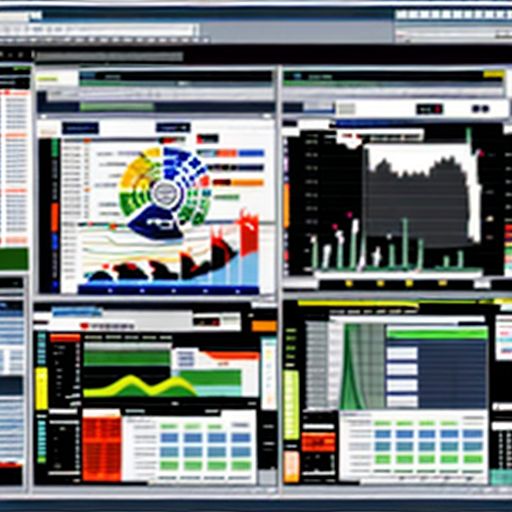Imagine a world where your service business runs like a well-oiled machine. Customer data is at your fingertips, projects are managed with precision, and resources are always optimized. This isn’t a fantasy; it’s the power of ERP software for the service industry.
What is ERP Software for the Service Industry?
ERP, or Enterprise Resource Planning, software is a suite of integrated applications designed to manage core business processes. But it’s not just for manufacturing giants anymore. Service industry ERP software is tailored to meet the unique needs of businesses that provide services, from consulting and IT to healthcare and hospitality.
Why is ERP Software Crucial for Service Businesses?
In today’s competitive market, service businesses face mounting pressure to deliver exceptional customer experiences while maximizing efficiency. This is where ERP software proves invaluable:
- Enhanced Customer Relationship Management (CRM): ERP systems centralize customer data, allowing for personalized interactions, efficient service delivery, and targeted marketing efforts.
- Improved Project Management: Track project progress, allocate resources effectively, and monitor budgets in real-time, ensuring projects stay on schedule and within budget.
- Streamlined Operations: Automate tasks such as invoicing, scheduling, and time tracking, freeing up valuable time for employees to focus on high-value activities.
- Data-Driven Decision Making: Access real-time insights into key performance indicators (KPIs), enabling informed decisions that drive growth and profitability.
- Scalability and Flexibility: As your business expands, ERP software can adapt to accommodate your evolving needs, ensuring seamless growth and agility.
 erp.backinhtravel.com/erp-software-for-service-industry/">Erp Software For Service Industry" width="512" height="512">ERP Software for Service Industry
erp.backinhtravel.com/erp-software-for-service-industry/">Erp Software For Service Industry" width="512" height="512">ERP Software for Service Industry
Key Features of Service Industry ERP Software:
1. Professional Services Automation (PSA):
PSA tools are essential for managing projects, resources, and billing in service-based businesses. Look for features like project planning, time and expense tracking, and resource allocation.
2. Customer Relationship Management (CRM):
A robust CRM module helps you manage customer interactions, track sales opportunities, and provide excellent customer support. Key features include contact management, lead nurturing, and service ticket management.
3. Human Capital Management (HCM):
For service businesses, your employees are your most valuable asset. HCM modules assist with talent acquisition, onboarding, payroll, benefits administration, and performance management.
Answering Your Questions about ERP Software:
What are the benefits of cloud-based ERP for service businesses?
Cloud-based ERP solutions offer flexibility, scalability, and cost-effectiveness, making them ideal for growing service businesses.
How do I choose the right ERP software for my service business?
Consider your specific industry needs, budget, company size, and desired features. Research different vendors and request demos to find the best fit.
What is the ROI of implementing ERP software in the service industry?
While ROI varies, service businesses often see significant returns through increased efficiency, reduced costs, improved customer satisfaction, and better decision-making.
Conclusion: Embrace the Power of ERP Software
Implementing ERP software is a strategic investment that can revolutionize your service business. By streamlining operations, improving customer relationships, and providing data-driven insights, ERP empowers you to achieve sustainable growth and success in today’s competitive market.
Ready to take your service business to the next level? Explore the world of ERP software and discover the transformative potential it holds for your organization.